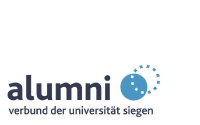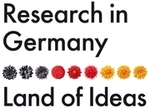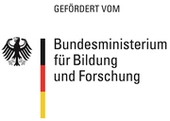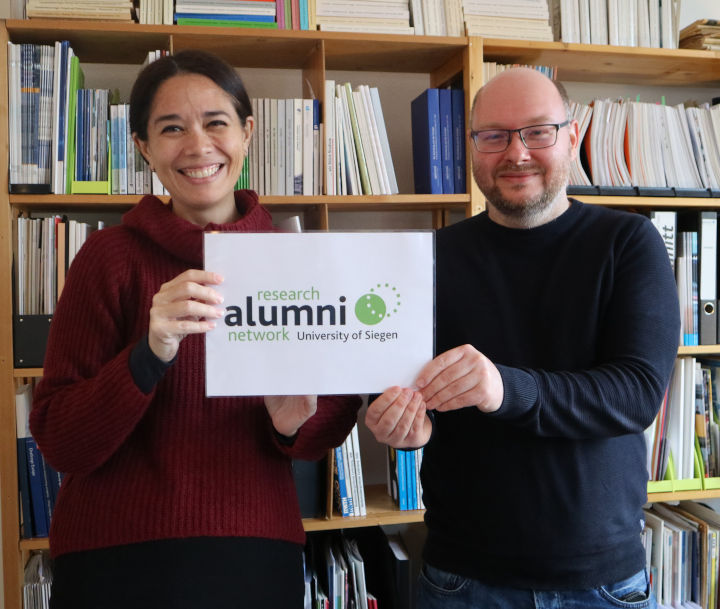- Alexander von Humbold-Stiftung prämiert Konzept zur Vernetzung der Forscher-Alumni
- Forscher-Alumni im "Querschnitt 5/2016"
- Forscher-Alumni im "Querschnitt 4/2017"
- Forscher-Alumni im "Querschnitt 1/2018"
- Forscher-Alumni im "Querschnitt 2/2018"
- Forscher-Alumni im "Querschnitt 3/2018"
- Forscher-Alumni im "Querschnitt 1/2019"
- Forscher-Alumni im "Querschnitt 2/2019"
- Forscher-Alumni im "Querschnitt 3/2019"
- Forscher-Alumni im "Querschnitt 1/2020"
- Forscher-Alumni im "Querschnitt 2/2020"
Prof. Dr. María Cristina Osorio Vázquez - Dr. Christian Koch
Closing the educational gap for indigenous girls in Yucatan.
In Mexico, only 47 % of indigenous children enrolled in primary school continue their studies at secondary level. Leaving school early exacerbates further socioeconomic inequalities that can continue throughout that person’s entire life. Girls from indigenous backgrounds are at a particularly high risk of leaving education early. It is therefore a pressing question to consider what can be done to help to prevent girls from indigenous backgrounds from leaving education, and how can we help those who have already left to come back to education at a later stage. These kinds of issues are also seen in many marginalised groups of people across the world.
This is one of many questions that Prof. Dr. María Cristina Osorio Vázquez and Dr. Christian Koch are working together to address at the University of Siegen. María Cristina is a professor and a researcher based in the south of Mexico, much of her research is focused on the education of adolescent girls in small indigenous communities, particularly Mayan speaking communities on the Mexican peninsula of Yucatan. Christian is a postdoctoral researcher based at the University of Siegen who specializes in linguistics and didactics of Romance languages.
Both researchers came to know one another at a conference in Munich in 2017. At the time Christian was looking into bilingual education for indigenous people in Ecuador. Allowing children from indigenous households to begin their education in their native language, and to gradually transition toward Spanish, results in them being able to fully participate in the educational system. Doing so can help them to close the gap in educational outcomes with their non-indigenous counterparts. María Cristina and Christian noticed the many similarities in their respective research projects, and began to plan a joining project that would take place at the University of Siegen.
Thanks to a Georg-Forster scholarship supported by the Alexander von Humboldt Foundation, María Cristina was able to come to Siegen for an 18 month research visit, during which she and Christian would learn best practices comprising the German educational system’s approach to preventing children from leaving education early, particularly those from migrant backgrounds, as well as reintegrating children into education who have left. They are hoping to understand whether some of these lessons could be applied to smaller indigenous communities in Yucatan. Girls are at a particularly high risk of leaving education prematurely due to cultural norms around the role of women as caregivers in society. They are often pressured into leaving their education for several reasons, including a lack of money, getting married or becoming a caregiver. One way to reduce this pressure on the family is to provide them with scholarships and other means of financial support.
There are educational programmes offered by the government of Mexico to help ensure that girls from indigenous communities finish education, but many of those who need it the most are not aware of or able to take advantage of them. Awareness is a particular problem for smaller communities, particularly for those who would like to rejoin their school. In order to receive information about these kinds of scholarships, one has to be in touch with their faculty, but once someone has actually left school, they are no longer in contact with those who have the information to help them.
In order for a programme to be successful, it is essential that it have the support of the wider community. It is therefore necessary to be sensitive of the cultural and religious beliefs of everyone involved. The approach of those trying to help should therefore not be to try to change things, but instead to try to communicate and raise awareness of what can be done to address issues. By doing this, researchers should seek to serve the community and to engage with them in order to find a sustainable solution for everyone. For this reason, solutions have to be grounded in the context of a community. María Cristina and Christian are planning to engage directly with educators in the German system, to go into the classrooms and to observe strategies for keeping and reintegrating children into the educational system. María Cristina also takes the same approach to working with communities in Yucatan.
From her experiences so far, María Cristina observes that the German system has numerous measures to not only prevent students leaving, to also build awareness with the students of the support available. They are still seeking to understand all of the numerous differences of the German system, but there are many interesting approaches to supporting students, particularly girls from migrant backgrounds, in completing their education. These will be used to develop new inclusion strategies for Yucatan. For María Cristina and Christian, what excites them the most is the chance to work with people in smaller communities, to understand their approaches and perspectives on helping children through their education. This is the way to ensure that research best serves communities and to really make a difference.
This article is based on an interview conducted and authored by Benjamin Wrigley.






